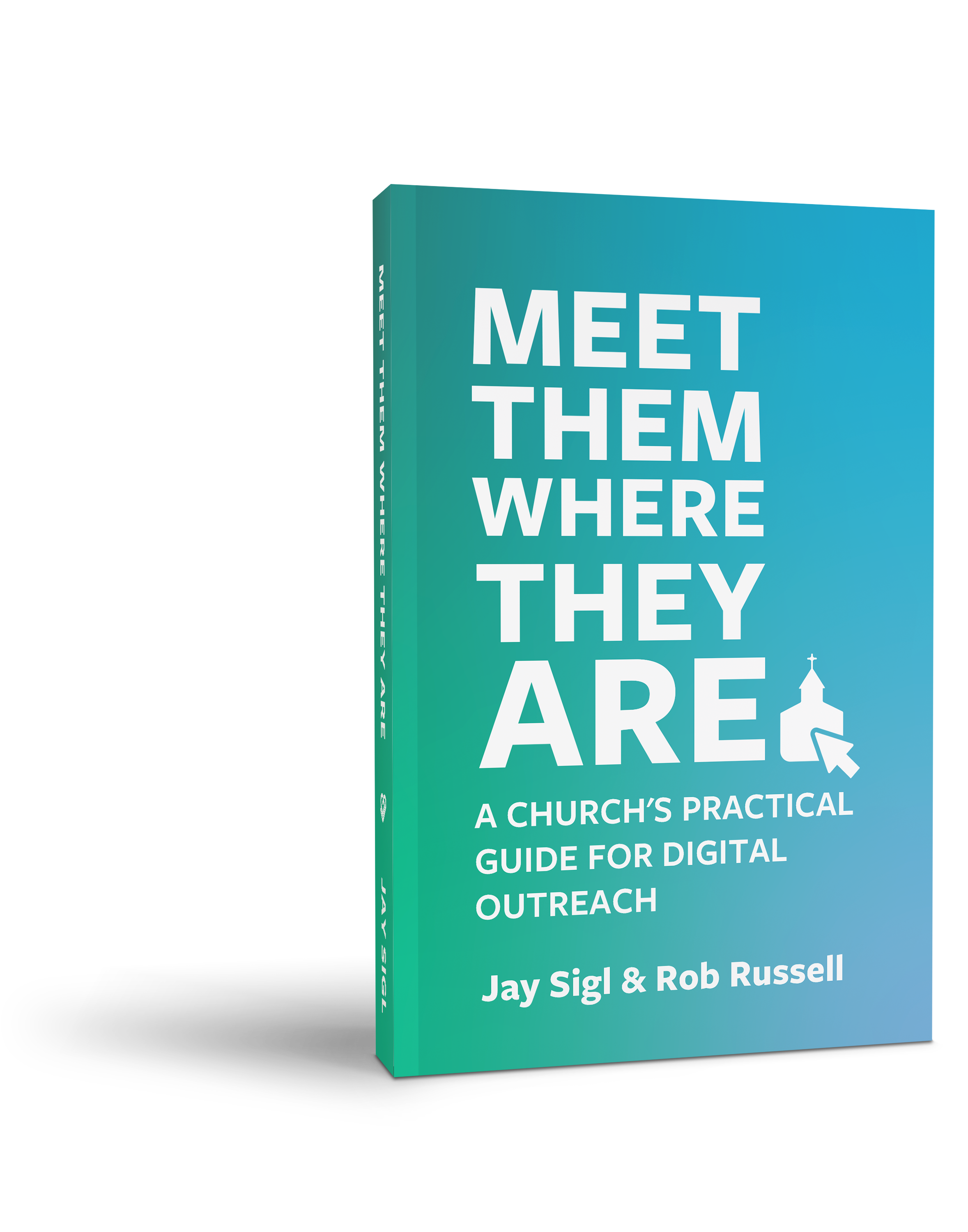Is Your Church Website Getting Lost in Translation?
You might understand "Christianese." But to a new guest, you might as well be speaking a different language.





You might understand "Christianese." But to a new guest, you might as well be speaking a different language.
.svg)
“Let’s do life together.”
“Growth happens in circles, not rows.”
“I pray a hedge of protection around you.”
“Join us for the breaking of bread and laying on of hands.”
These phrases might be in English, but they can be incomprehensible to someone who isn’t part of the Church.
They’re all common examples of the dialect often called “Christianese”—and it could seriously hurt your church’s ability to connect with new people.
Christianese, the insider jargon used in and around churches, may not seem like an issue to you and your staff. But to a new guest, you might as well be speaking a different language.
Christianese came about for a reason. Many of these phrases have a rich etymological history (like “Gospel” and “evangelism”), or they describe and clarify specific doctrines (like “Trinity,” “anointing,” and “tithes”). We use these words to accurately talk about our specific beliefs, often communicating years or centuries of Church history and theology in just a few syllables.
Other pieces of Christianese are the result of the Christian subculture. Like any subculture, we pick up on phrases from each other, developing our own internal dialect. These phrases often function as shorthand.
For example: instead of saying, “let’s have an honest and vulnerable relationship marked by meeting up regularly and discussing our spiritual lives,” we say “let’s do life together.”
Most of the time, these phrases aren’t inherently bad or wrong. They can be useful and accurate in the right context.
But if your church website is full of Christianese, you may be making it difficult for newcomers to feel included.
Your church website needs to be accessible for new visitors (more on that here). And that goes for all aspects of design, from your homepage layout to the kind of language you use.
Think about the kinds of people who are most likely to visit your website, who want to learn more about your church.
Every new guest has their own unique story and reasons for visiting your church, but recent surveys allow us to make some educated guesses about their situations.
Statistically, most new guests have recently moved to the area or have experienced dissatisfaction with their previous church (Lifeway, 2024).
That’s your main audience when speaking to new visitors: people who have just undergone a major life change and are looking for somewhere to belong, and people who have been hurt by the Church.
These new guests want to find community. They want to feel welcome. But if you speak to them with Christianese, you’re implying to them that they don’t belong. They might feel confused, excluded, as if they’ve missed something.
When you use insider language in your church website, you risk alienating the very people you’re trying to reach.
When rethinking your church website for new guests, there are a few ways you can keep your language welcoming for newcomers .
Make a list of words and phrases that you want to avoid using altogether. Go through your website page by page looking for those particular phrases, and swap them out with language that makes sense to a non-church member.
Ask an outsider to evaluate your communications. You may not be aware of just how much Christian jargon you use until an outsider calls attention to it.
Work with your whole team to think up alternatives to your go-to Christianese phrases. You can even make it a game—Christianity Today suggests making bingo cards for ministry staff with your most common pieces of Christianese.
Swap out phrases on a case-by-case basis. Sometimes, Christianese is the most accurate language to describe something. Don’t instate a blanket ban on words like “communion” or “quiet time” when, with the right context, those are the right words. Look at each instance of Christianese in your communications, and consider if that is the most appropriate and approachable wording available.
Define and clarify biblical language. Some Christian words and phrases like “sin” and “salvation” are actually in the Bible, but they may also carry different connotations to a secular audience. You shouldn’t replace words that Scripture uses, but don’t assume your audience knows what you mean when using biblical language. Take the time to define your terminology.
Remember—Jesus spoke to his audience in a way they could understand. He used parables to communicate complex and difficult truths. In the same way, it’s important for us to use language that our audience can relate to, or we risk getting in the way of someone coming to know Jesus.
Need help rethinking your church website with new guests in mind? Maybe the thought of going page by page through your website copy is daunting, and you don’t know where to start. Let GraceLed Communications take the lead. We’d love to chat about how we can help your church reach more people online. Just schedule a call here to get started!